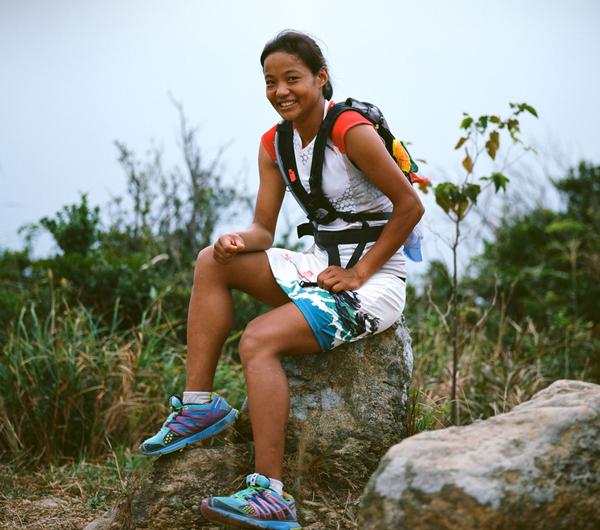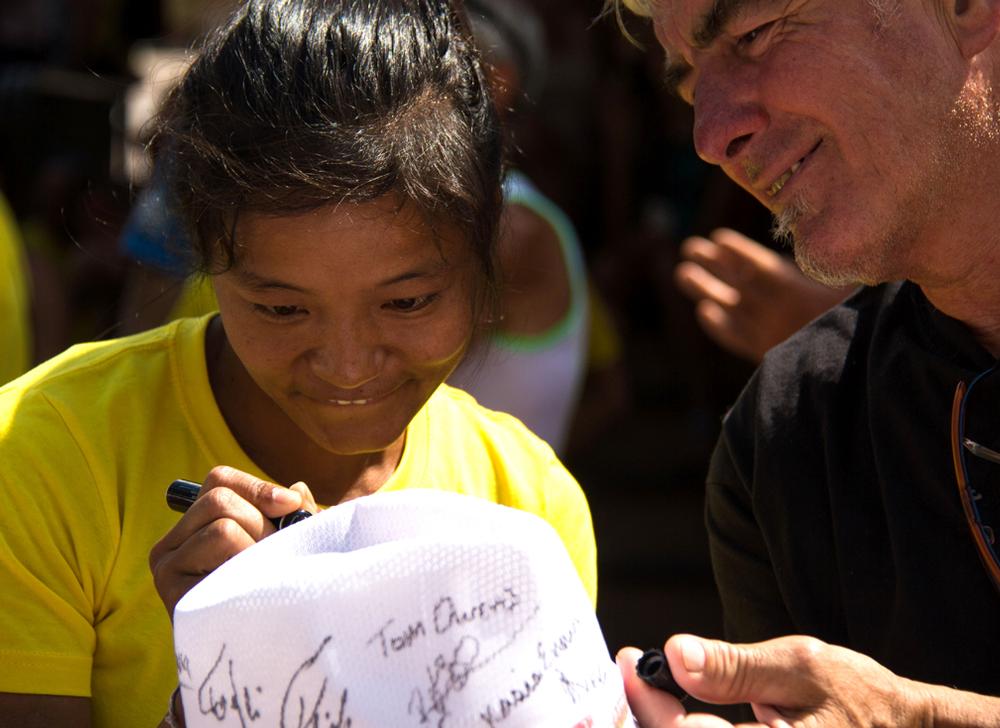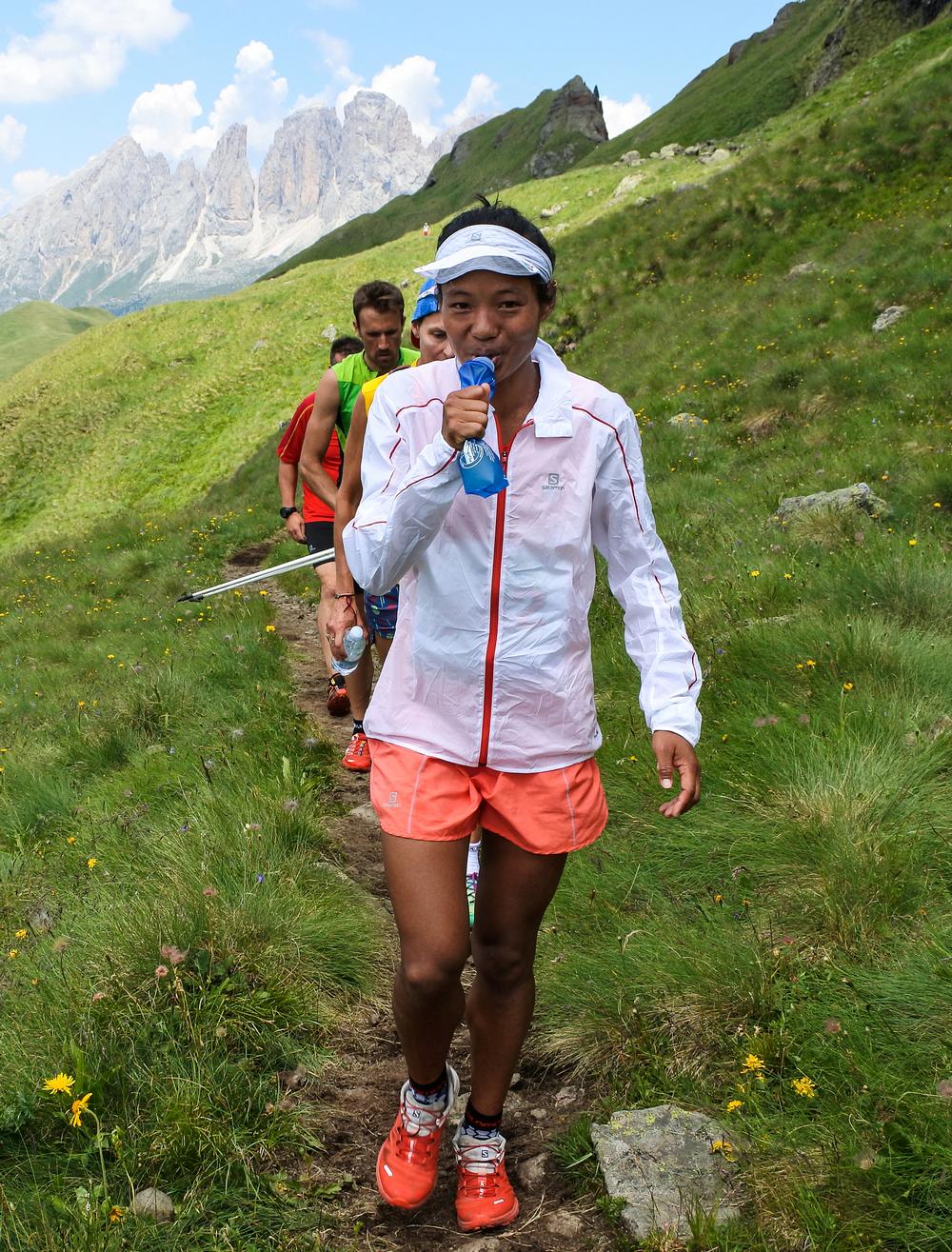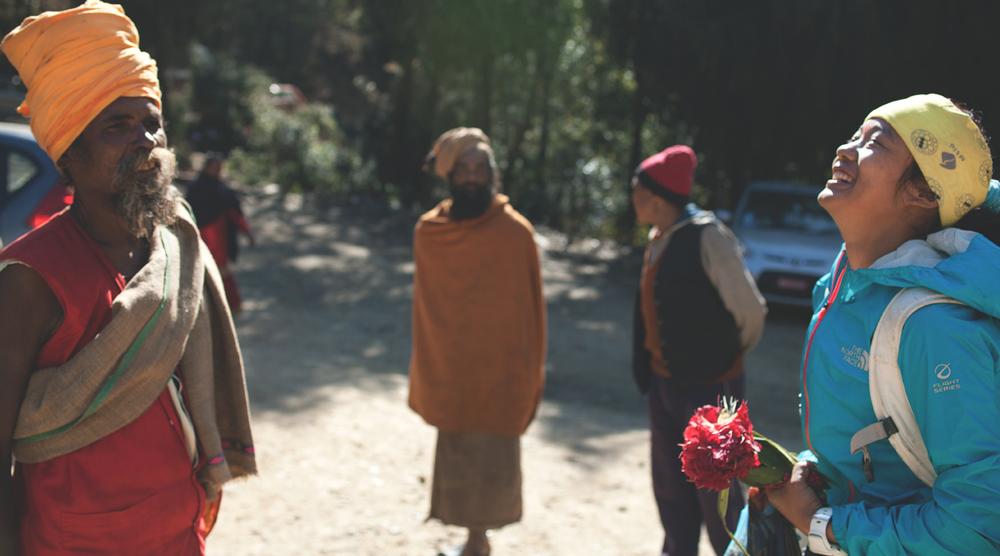People : Mira Rai
Endurance runner

Mira Rai is quite literally a trail blazer. The former child soldier from a poor Nepalese village is winning races in one of the world’s toughest sports – ultra marathon running – and becoming a national hero for her country’s women.
Rai grew up in the eastern Nepalese village of Sanu Dumma. She received minimal schooling and performed daily household chores in preparation for marriage and a life of hard labour – as is widely expected of Nepalese girls with her background.
Running became instinctive for her when she was sent to the market – three hours away – to buy sacks of rice weighing 28kg before running back to sell them for profit, aged 11.
In 2003, Rai, then 14 years old, was recruited by Nepal’s Maoist guerrillas. Lifted into an “always dangerous regime of constant uncertainty”, Rai experienced a sense of escapism at the rebels’ sports facilities. Denied the chance of anything other than a monotonous life of hard work on a rural hillside, the young girl saw the insurgents’ football, volleyball and athletics fixtures as “amazing opportunities.”
When the war ended in 2006, the United Nations deemed Rai to be a child combatant, which meant she wasn’t included in the incorporation of Maoist forces into a new national army. Rejected by the UN, she went home to study. She also kept running every day.
The first race
A couple of hill runners told Rai about a local 21km race in 2014, which she went on to enter and win – despite collapsing 400 metres from the finish line because she hadn’t brought food or drink. Spurred on by her success, she moved to the northwest of the Kathmandu Valley to see if she could compete more.
Trained over the phone by a coach, to avoid paying a 20 pence bus fare to the stadium each day, Rai’s confidence grew. In March the same year, she entered the 50km Himalayan Outdoor Festival race – her first official event. Another runner lent her 50 Nepalese Rupees for food and drink near the end of the trail, however, she was famished, having not packed any nourishment again. She still won first place.
Event organiser and Rai’s race coordinator, Richard Bull, told Sports Management that it’s not unusual for Rai to arrive unprepared for an event. “When runners get to a checkpoint, they think the time is more important than eating.” Thanks to Bull, however, Rai has been able to compete internationally. He set up a crowdfunding page on the website he runs: trailrunningnepal.org, where donors ranging from running friends to tourists sponsored Rai’s training.
“Before anyone recognised how talented Mira is, we calculated it costs US$80 per month to live in Kathmandu so we aimed for that,” said Bull. “On top of this, we started another collection for Mira’s trip to Italy to run both the Sellaronda Trail Race, 57km, and the Trail Degli Eroi, 83km. The contributions we received paid for her flights, equipment and her visa – which only arrived six hours before her flight departed.” It was worth the journey, as Rai won both races.
Strength to strength
Rai has come a long way since then. After more races in Hong Kong, Nepal and Australia – with some flights paid for by Hong Kong ‘s Dragonair – it was time for the Ultra-Trail du Mont-Blanc (UTMB) in April 2015.
It was here, at the 80km race through the French, Italian and Swiss Alps, that Rai realised she needed to adapt her running technique.
“UTMB is essentially a festival dedicated to running and the first thing Mira did when she arrived was to watch,” said Bull. “She learned from other competitors – world class runners – to be lighter on her feet. After this race – which she won – she started doing more strength-building drill exercises and technique-enhancing sprints.
“Ultra running is about hanging in there during long periods of slow running and keeping your heart rate low,” says Bull. “Hitting ‘the wall’ should never happen to an endurance athlete.
“Ultra running is different from marathon or shorter distance events. It has a big focus on managing energy input. So, for example, training will be for long periods at low heart rates. Then there’s the discipline of not eating too much at checkpoints: I think gels have enabled runners to avoid the wall, if they’re sensible.”
While Rai’s training regime has changed over time, her programme is starting to build up in preparation for this year’s races. Towards the beginning of April it will increase to six hours a day, ahead of The Yorkshire Three Peaks Challenge 37.4km run. Described by Bull as “for fun”, this UK event will serve as preparation for the 76.7km Transvulcania ultra marathon on the Canary Island of La Palma 14 days later.
“Rai has won money now and people have made donations to her from all kinds of places, including businesses that are grateful to her for putting Nepal out there in a positive light. For a woman in Nepal, she’s done extraordinarily well.”
Film of her life
With such an amazing story to tell, Rai has agreed to let filmmaker Lloyd Belcher make a film about her life. This is due to be released this month at film festivals and on platforms such as Vimeo. A portion of the proceeds will be used to create a fund to support other Nepalese girls’ running ambitions.
Bull notes how difficult it is to change Nepalese society’s opinion of girls and women through sport when life is difficult as it is and says this will help. “Power cuts last 13 hours a day here in Nepal, mostly during the day,” he explains. “There’s a political crisis in the south, which has meant checkpoints are blocked and there are huge fuel shortages. These factors combined mean organising things is difficult.”
Campaigning for women and sport
“Mira is passionate about fighting the bias against women and she’s speaking up against it. She’s finding her voice after being voiceless for so long. Now she can meet the people who run the country, she can get on TV and radio and be listened to,”’ says Bull. “Mira is popular now. Everybody who meets her likes her immensely. She’s full of energy and always smiling. But Mira’s task is also to focus on running. Being an ambassador for trail running, for women and for sport already means she’s achieved a great deal already in her life, with more to come.”






Team Leader (Harrow School Fitness Club)
Centre Manager
Director of Operations
Fitness Motivator
Recreation Assistant/Lifeguard (NPLQ required)
Membership Manager
Recreation Assistant
Swim Teacher
Swim Teacher
Chief Executive Officer, Mount Batten Centre
Swim Teacher
Swimming Teacher
Swimming Teacher
Company profile

Featured Supplier

Property & Tenders
Company: Knight Frank
Company: Belvoir Castle
Company: AVISON YOUNG
Company: London Borough of Bexley
Company: Forestry England














